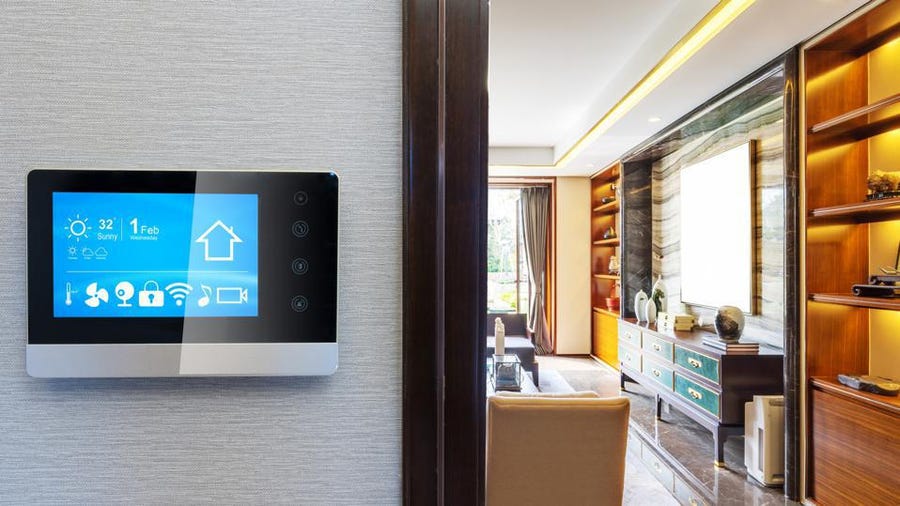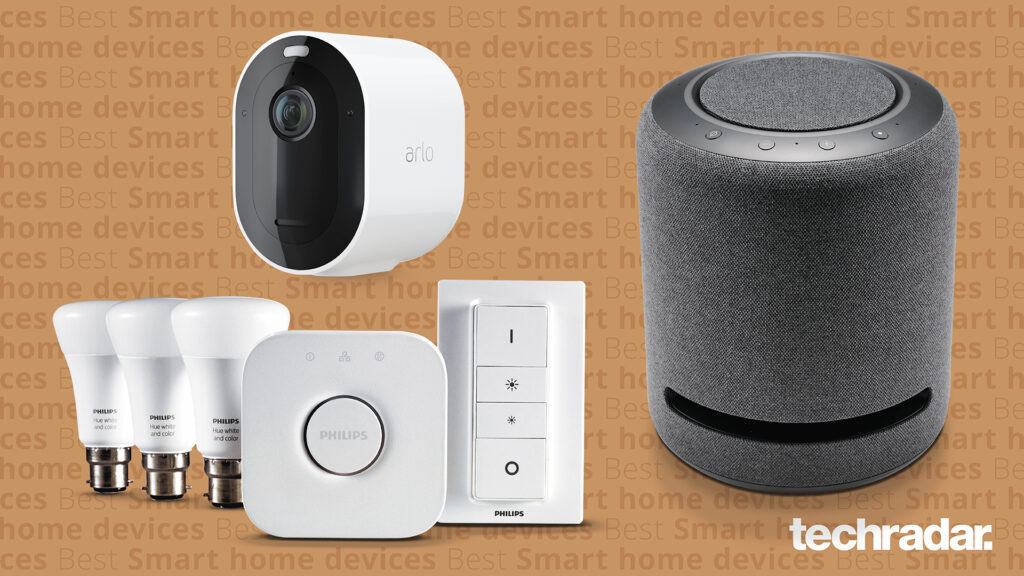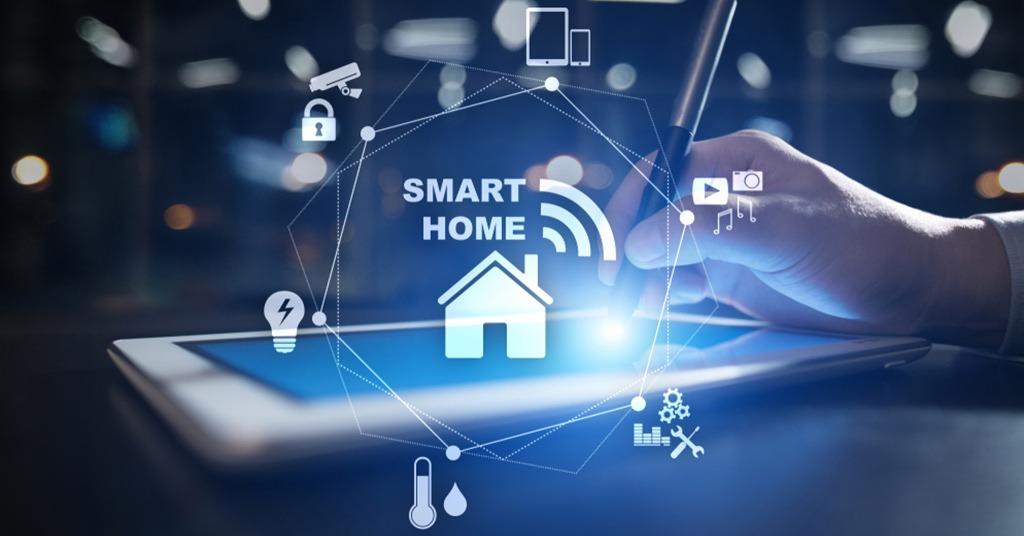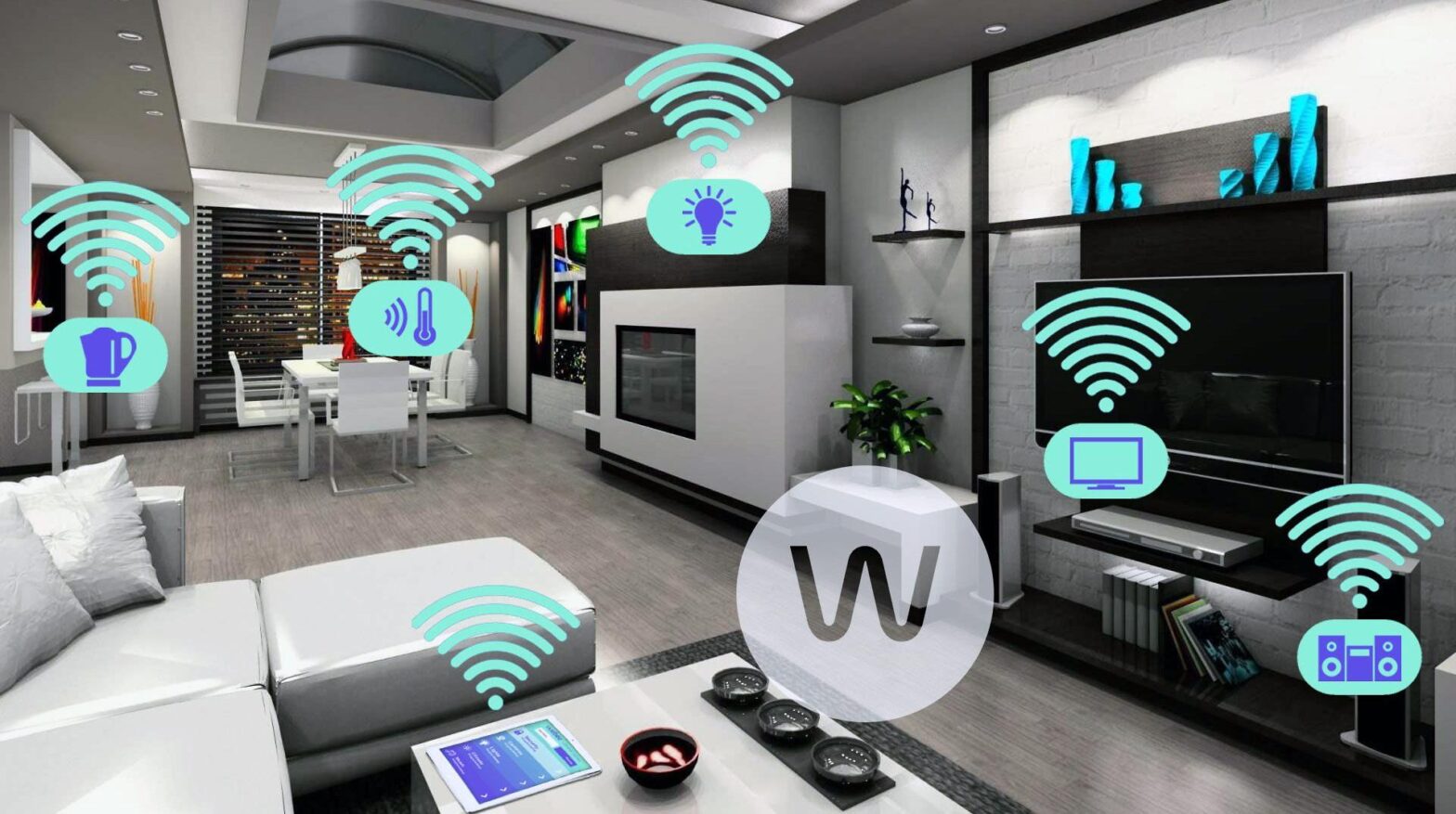In recent years, there has been a significant increase in the adoption of smart home technology, which allows homeowners to control various aspects of their homes using their smartphones, tablets, or voice assistants. From controlling the temperature to monitoring security systems, smart home technology has revolutionized the way people live and interact with their homes. In this article, we will explore the rise of smart home technology, its benefits, and its potential implications for the future.
You can hire a group of lawyers for a startup business to assist you in developing a company using smart home devices.
What is Smart Home Technology?
Smart home technology refers to a network of devices and appliances that are connected to the internet and can be controlled remotely through a smartphone, tablet, or voice assistant. These devices are designed to automate and simplify various aspects of home management, such as lighting, temperature, security, and entertainment. If you own Smart Home technology at your home and it gets corrupted – contact the best IT services in San Antonio for a solution.
Examples of Smart Home Technology
There are many different types of smart home technology available on the market today. Some of the most common examples include:
Smart thermostats: These devices can learn a homeowner’s behavior and automatically adjust the temperature based on their preferences. This can lead to significant energy savings over time. If your goal is to start a business that sells and repairs smart technology but are in lack of money to accomplish such a thing, you can get a commercial loan to start up your business just right.
Smart lighting: Smart lighting systems can be programmed to turn off when no one is in the room, reducing energy waste. They can also be controlled remotely, which means homeowners can turn lights on or off from their smartphones. With the growth of smart home technology, many traders have begun to deal with it.
Smart security systems: These systems include security cameras, sensors, and smart locks that can be controlled remotely. Homeowners can monitor their homes and receive alerts if there is any unusual activity.
Smart entertainment systems: These systems include devices such as smart speakers and streaming media players that can be controlled using voice commands or a smartphone app.
With the growth of smart home technology, many traders have begun to deal with it. There are commodity trading courses accessible if you want to start your own trading business.
Potential Implications
While the benefits of smart home technology are clear, there are also potential implications to consider. One of the main concerns is privacy. With smart home devices, homeowners are essentially allowing technology companies to collect data on their behaviors and habits, which could be used for marketing purposes or sold to third parties.

Another potential implication is the risk of hacking. Smart home devices are connected to the internet, which means they are vulnerable to cyberattacks. If a hacker gains access to a smart home device, they could potentially control various aspects of the home, including security systems.
Smart home technology has become increasingly popular in recent years, thanks to its convenience, enhanced security, and potential energy savings. While there are potential implications to consider, such as privacy concerns and the risk of hacking, the benefits of this technology are clear. As smart home technology continues to evolve, it will be important for homeowners to stay informed and make informed decisions about which devices to adopt.
Not only the home technology is getting advanced today, as you can see for yourself, we are equipped with devices that let us connect and see people and places all around the world in just seconds, there are even self-driving cars in the making, the best Denver limo service has their own self-driving vehicle that also has a disposable dose of alcohol in the back to let you enjoy a glass of wine in the back during your ride.
As with any emerging technology, there are potential implications to consider with smart home technology. Some of the main concerns include privacy, security, and the potential for malfunction.
Privacy Concerns
One of the main concerns with smart home technology is privacy. Smart home devices collect data on a homeowner’s behaviors and habits, which can be used for marketing purposes or sold to third parties. This data can include everything from a homeowner’s daily routine to their preferences for temperature and lighting. Privacy concerns arise when individuals’ personal information, such as their location and browsing history, are used to target them with ads for questionable products like snakes for sale, potentially exposing them to scams or fraud.
While many smart home technology providers have privacy policies in place, there is always a risk that data could be mishandled or used for nefarious purposes. Homeowners need to read the privacy policies of any smart home devices they plan to purchase and make informed decisions about which devices they want to integrate into their homes.
Another concern is the potential for hackers to gain access to smart home devices. If a smart home device is hacked, it could potentially give hackers access to personal information, such as bank details, as well as control over the devices themselves. For example, a hacker could turn off security cameras, unlock doors, or even cause appliances to malfunction.
To address these privacy concerns, smart home companies need to prioritize security and transparency. Smart home devices should be designed with robust security measures, such as encryption and two-factor authentication, to prevent hackers from gaining access. Companies should also be transparent about what data they collect and how it is used, giving users the option to opt out of data collection if they choose. If you are looking to invest in smart home technology or a business that would sell smart technology, it might be the best option to consult with the m&a business advisors before doing so.
Security Risks
Smart home devices are connected to the internet, which means they are vulnerable to cyberattacks. If a hacker gains access to a smart home device, they could potentially control various aspects of the home, including security systems.

To minimize the risk of a cyberattack, homeowners need to take steps to secure their smart home devices. This can include setting strong passwords, regularly updating software, and only purchasing devices from reputable manufacturers.
People frequently choose loans in minutes to purchase high-quality and secure smart home appliances.
Malfunction
Another potential implication of smart home technology is the risk of malfunction. If a smart home device malfunctions, it could potentially cause damage to a home or harm to its occupants.
To mitigate this risk, homeowners should only purchase smart home devices from reputable manufacturers and ensure that they are installed and maintained properly. Homeowners should also regularly check their devices for any signs of malfunction, such as strange noises or abnormal behavior.
Smart home technology has the potential to make our lives more convenient and secure, but it’s important to be aware of the potential implications. By taking steps to secure our smart home devices, read privacy policies, and purchase devices from reputable manufacturers, we can enjoy the benefits of smart home technology while minimizing the risks.
Did you know that some of the electrical contractors in Puyallup are attempting to create these technologies more securely?
Benefits of Smart Home Technology
One of the main benefits of smart home technology is convenience. With smart home devices, homeowners can control various aspects of their homes remotely, which means they can manage their homes even when they are away. For example, they can adjust the thermostat, turn off lights, and lock doors from their smartphones.
The benefits of smart home technology extend beyond the home itself, as seen with the integration of the eterra raptor boom mower, which can be remotely controlled and used to maintain the landscaping around the property.
Another benefit of smart home technology is energy efficiency. Smart thermostats, for example, can learn a homeowner’s behavior and automatically adjust the temperature based on their preferences, which can lead to significant energy savings. Smart lighting systems can also be programmed to turn off when no one is in the room, reducing energy waste. Most smart homes of today contain patio misting systems to cool down the temperature during the hot summers.

Smart home technology can also enhance home security. Homeowners can monitor their homes remotely using security cameras and sensors, and receive alerts if there is any unusual activity. Smart locks can also be controlled remotely, which means homeowners can grant access to visitors without having to be physically present.
Smart home technology has numerous benefits for homeowners. Some of the main advantages include:
Convenience: Smart home technology makes it possible to control various aspects of a home with just a few clicks or voice commands. Homeowners can remotely adjust the temperature, lighting, and security systems, making it easier to manage their homes.
Smart home technology offers numerous benefits, including the ability to remotely control lighting, temperature, and security systems, which can be particularly helpful for individuals who need to schedule appointments, such as a chiropractor in Reno NV, while away from home.
Energy Efficiency: Smart home technology can help homeowners save on energy costs by automating the use of energy-consuming devices. For example, smart thermostats can automatically adjust the temperature based on the homeowner’s habits, while smart lighting systems can turn off lights in empty rooms. If you are using apple devices to control your home’s network of devices, and it gets malfunctioned, you can always get it repaired at apple repair services in Seattle.
Increased Security: Smart home technology can help homeowners keep their homes secure by providing real-time alerts and access to security cameras. Homeowners can monitor their homes from anywhere, and receive notifications if any unusual activity is detected.
Improved Health and Wellness: Smart home technology can also help improve the health and wellness of homeowners. For example, smart air purifiers can monitor indoor air quality and automatically adjust their settings to provide clean air, while smart beds can monitor sleep patterns and adjust to optimize sleep quality. It’s good as long as your technology enthusiasm doesn’t turn into an addiction as it happens for anything else. Most tech enthusiasts are heavy gamers and restrict themself from the social environment, which is bad for them. They are addicted to gaming similar to how drug addicts are addicted to heroin. If you know someone that has drug problems, you should show them support by redirecting them to a suboxone clinic in Los Angeles for the best therapy.
Accessibility: Smart home technology can make it easier for people with disabilities to live independently. For example, voice-activated smart home devices can allow individuals with mobility issues to control various aspects of their homes without needing to physically interact with devices.
Overall, smart home technology has the potential to greatly enhance the quality of life for homeowners. From increased convenience to improved health and wellness, the benefits of smart home technology make it an exciting and promising area of innovation.
The Future of Smart Home Technology
Smart home technology has revolutionized the way we live, offering us greater control over our homes and improving our quality of life. As technology continues to advance, the potential for smart home systems is only increasing, and experts predict that the smart home market will continue to grow in the coming years.
Did you know that a fence company in St Augustine manufactures smart gates that can be opened via the internet from afar?
One of the most significant advancements in smart home technology is the integration of artificial intelligence (AI). AI-powered virtual assistants like Amazon’s Alexa and Google Assistant have already transformed the way we interact with our homes, allowing us to control everything from the temperature to the lighting with just our voices. In the future, AI is expected to become even more sophisticated, providing even greater levels of automation and customization. If you are missing money to invest in your own home smart technology for better security, you may get payday loans and start purchasing and setting it up even today!
Another area of innovation in smart home technology is the development of smart appliances. Companies are already producing smart refrigerators that can keep track of food items and suggest recipes, while smart washing machines can be programmed to run at the most energy-efficient times. In the future, we can expect to see even more smart appliances, including ovens that can cook food automatically, and smart coffee makers that can brew the perfect cup of coffee based on personal preferences.
Most houses that are fully set up with smart technology require a real estate expert witness to assess the house in detail before it is put up for sale.
The Internet of Things (IoT) is also expected to play a significant role in the future of smart home technology. With the IoT, all devices in the home can be connected and communicate with each other, allowing for greater automation and control. For example, if a smart home security system detects a break-in, it can automatically turn on the lights and alert the homeowner’s phone. The possibilities for IoT-enabled smart homes are endless, and the technology is only becoming more widespread and accessible. It is even widespread in local shops, theatres, cinemas, business centres, spa centres etc. For example, there is a spa in Houston that has a very advanced massaging bed with lots of accessories that maximize the comforts and enjoyment of the experience.
Of course, with all these advancements, concerns about privacy and security are also growing. As more devices become connected and data is shared, smart home companies need to prioritize security and transparency to ensure that customers’ data is protected. Smart, exterior doors that are connected to the network are now posing a threat for intruders to be able to hack into their system for access.
In conclusion, the future of smart home technology is both exciting and promising. With advancements in AI, smart appliances, and IoT, smart homes will become even more automated, customized, and convenient. While privacy and security concerns will need to be addressed, the potential for smart home technology to improve our lives and make our homes more efficient and enjoyable is undeniable.
Ask a real estate agent in San Ramon about the best choices if you’re still searching for a new house to convert to a smart home.
Conclusion
The rise of smart home technology has revolutionized the way people interact with their homes. While there are clear benefits to this technology, such as convenience, energy efficiency, and enhanced security, there are also potential implications to consider. As smart home technology continues to evolve, it will be important for homeowners to weigh the benefits against the risks and make informed decisions about which devices to adopt.
As homeowners consider the benefits and implications of smart home technology, it’s important to remember that the convenience of remotely controlling home appliances can also extend to other aspects of daily life, such as ordering food for delivery, like frozen yogurt in Phoenix AZ, with just a few taps on a smartphone app.

